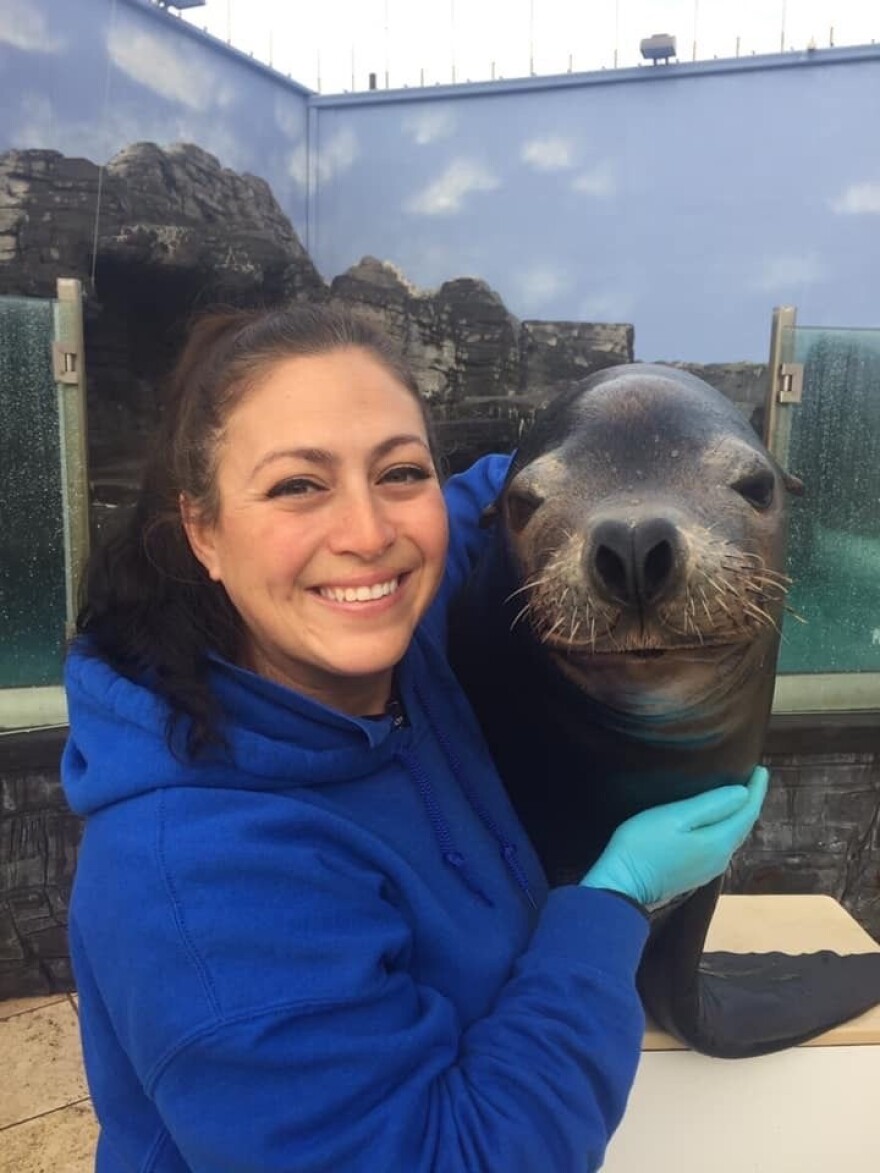There are some businesses that can’t shut down during a global pandemic. Hospitals of course need to care for people and research health issues. But aquarium staff say they can’t turn off the lights or work from home either. They have animals to feed – and they're having trouble in isolation.
What is usually a busy time of year at the Long Island Aquarium in Riverhead now feels – a bit lonely.
“Well in April, we usually see close to 1,800 people a day, maybe 2,000 people a day coming in between visitors, our members, and of course the school groups,” says Bryan DeLuca, the aquarium’s executive director.
Like many other businesses, aquariums have been mandated to close their doors to the public to slow the spread of coronavirus.

“The impact has been tremendous. It’s frightening. Our ticket sales have been our main source of revenue. Although we have laid off 90% of our staff, which would be guest services and gift shops and the cafe and so forth, we are still in a very tough situation.”
A pandemic doesn’t stop the essential day-to-day operations that keep the animals healthy. It means what staff is left has to come in to care for them.
“Regardless of being open to the public, we always provide the highest standards of quality care. Their full diet, nutrition, any medications they might need,” says Tracy Camp with the Mystic Aquarium in Connecticut.
Camp works with the African penguins at Mystic, just some of their 4,000 animals that need care. And the animals can get lonely, too.
“We are actually enhancing and providing them with more enrichment every day since we don’t have the guests and visitors here that would naturally provide some enrichment for our animals.”
“The staff has a schedule, and every day they are engaging with different things, in addition to themselves taking the animals out, and letting them see and experience different things, so the engagement is a continual process for our team,” says DeLuca with the Long Island Aquarium.
And it’s expensive to feed and engage so many fish and mammals.
The Long Island Aquarium crowdsourced some help through a GoFundMe page. Individual donors helped them surpass their $25,000 goal. That will cover about a month’s worth of food and medication for the animals.
“About half the month of March and half the month of April will be covered, but after that we are in another challenging position.”
The donations also benefit the New York Marine Rescue Center that’s housed at the aquarium. They are the state’s only authorized facility to rehabilitate and release seals and endangered sea turtles. Rescues from this winter need the support if they’re to be released by the summer.
“We have a volunteer team that goes down on the beaches, picks them up. Then we have a small staff that tends to them, nurtures them back to health to the point of rehabilitation. Come summertime we can release those animals down in the waters.”
Meanwhile, many of the research projects at Mystic are now on the back burner because of staffing. Vital animal rescue and ocean conservation work will return when things get back to normal.
Until then, the aquariums say they value the community now more than ever.
“Now is the time that we really value our support, we value when someone is aware of what we’re going through, maybe they’re going to renew their membership, or consider us a place that would really appreciate some donations,” says Tina Tison, marketing director at the Maritime Aquarium in Norwalk.
The aquariums encourage people at home to access animal exhibits online and on social media. Some basic education programs are available through the meeting platform Zoom during the week – to give the animals love from their fans.

Read the latest on WSHU’s coronavirus coverage here.
Do you have questions you’d like WSHU to answer in local coverage of the coronavirus? Let us know via this survey.


